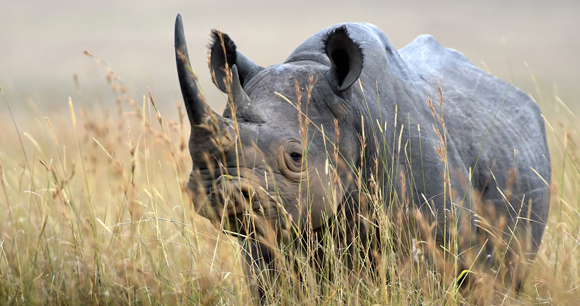
Washington, DC—From exploring the impact of the critically endangered golden coin turtle on Hong Kong’s ecological balance and cultural identity, to spreading awareness about the mental health of companion animals to help prevent abuse, participants in the 2024 “A Voice for Animals” contest prioritize education and community engagement to protect a range of species from human-caused suffering.
The annual contest offers high school students ages 14 to 18 the opportunity to win cash prizes for essays, videos, or photo essays that explore strategies to protect imperiled species and mitigate animal suffering. The contest is sponsored by the Animal Welfare Institute (AWI) and the Humane Education Network, with additional support from the Palo Alto Humane Society.
Nineteen entries won honors this year from a pool of more than 200. Submissions were judged on presentation, originality, and effectiveness of solutions to persistent problems. The honorees examined the exploitation of horses in the racing industry, vehicular collisions that are ravaging leopard populations in Taiwan, urbanization’s impact on disappearing pollinators, and more.
“AWI is impressed by the imagination and resourcefulness of these young advocates to improve the lives of animals where they live,” said Regina Terlau, AWI’s humane education program coordinator and co-manager of the contest. “These students understand how to harness the latest technologies to spread the word about animal suffering and species under siege, yet they also rely on more traditional methods, such as beach cleanups, fundraisers for animal shelters, and school composting programs, to make a lasting impact.”
The first-place winners are:
- Alison Cheng of Los Altos, California, for the video “Young Birders for Our Habitats,” which describes how birdwatching can encourage environmental stewardship and the conservation of rapidly declining bird populations. Cheng details her own experience co-founding the Santa Clara Valley Young Birders Club to galvanize more than 100 birders to identify different species, log their observations, and respect natural habitats.
- V’Jae Brown of Killeen, Texas, for the photo essay “Go Green KISD,” which outlines Brown’s efforts to teach students about sustainability principles and composting to reduce the impact of landfills on red fox habitat and prepare the next generation of conscientious citizens. Brown notes that the red fox’s struggle for survival is just one example of how urban expansion and waste dramatically alter the landscape and become ecological traps for wildlife.
- Daniel Athey of West Chester, Pennsylvania, for the “active involvement” essay “Rescue 911 for Our Shelter Animals.” Athey donated food, dog beds, cleaning supplies, and more to a local animal shelter during the COVID-19 pandemic; helped foster a malnourished dog; refinished and sold used furniture, donating the proceeds to the animal shelter; and posted photos and videos of adoptable dogs on social media to drum up interest.
- Krrisha Patel of Secaucus, New Jersey, for the essay “Preservation of Endangered Sea Turtles,” which describes Patel’s work participating in beach cleanups, leading educational workshops, and advocating policy changes to help sea turtles threatened by marine pollution, habitat loss, and rising sea temperatures.
- Zai Lee of Seoul, South Korea, for the essay “Ending Rhino Poaching for Generations to Come,” which examines how the relentless demand for rhino horn has a cascading effect on the entire food chain. Lee outlines a number of solutions to tackle both the supply and demand sides of this illegal trade, including increased ranger patrols, drone surveillance systems, stronger partnerships among law enforcement agencies, research into rhino horn alternatives, and economic incentives for local communities to abandon poaching.
- Sabrina Chen of Bryn Mawr, Pennsylvania, for the essay “Endangered Beauty,” which details how the exotic pet trade, human encroachment, and climate change have devastated populations of yellow-crested cockatoos on Indonesia’s islands. Chen created a website to spread awareness of the plight of the species, and sponsored cockatoos at a sanctuary to help save these versatile birds, who benefit the environment by dispersing seeds to regenerate plant species.
Click here for more information on the “A Voice for Animals” contest and to review all winning entries.
Marjorie Fishman, Animal Welfare Institute
[email protected], (202) 446-2128
The Animal Welfare Institute (awionline.org) is a nonprofit charitable organization founded in 1951 and dedicated to alleviating animal suffering caused by people. We seek to improve the welfare of animals everywhere: in agriculture, in commerce, in our homes and communities, in research, and in the wild. Follow us on Facebook, X (formerly Twitter), and Instagram for updates and other important animal protection news.